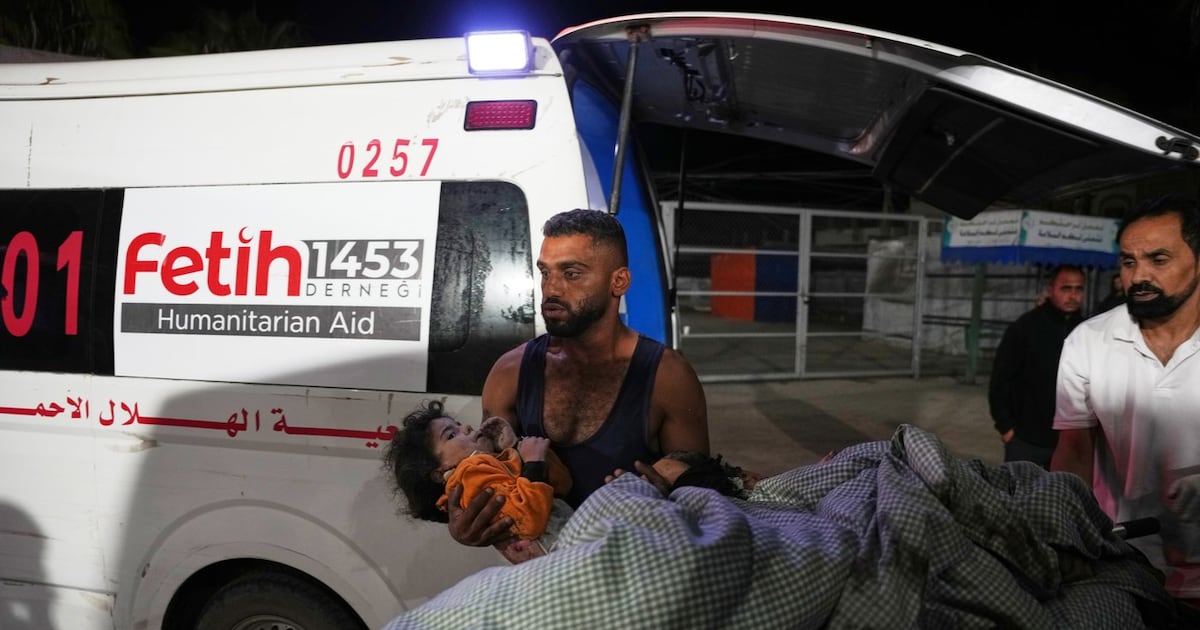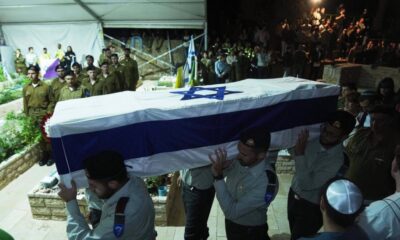Politics
Israel Resumes Airstrikes in Gaza, Ceasefire Under Severe Strain

Israeli military forces resumed airstrikes in the Gaza Strip on Wednesday, resulting in the deaths of at least 104 people, including 46 children. This escalation follows accusations by Israeli Prime Minister Benjamin Netanyahu that Hamas violated a ceasefire agreement. According to local health officials, the overnight strikes were the deadliest since the ceasefire was enacted on October 10 and have raised significant concerns regarding the fragile peace in the region.
Netanyahu stated that the military was ordered to conduct “powerful strikes” in response to Hamas’s actions, which included the return of body parts believed to belong to an Israeli hostage. He characterized this act as a “clear violation” of the ceasefire, designed to facilitate the return of hostages held by Hamas. Israeli officials have further alleged that the militant group staged the discovery of these remains.
As tensions escalated, Hamas announced that it would delay the transfer of another hostage’s body, complicating the ongoing negotiations. The exchange of hostages is crucial for moving forward with the ceasefire framework, which involves contentious issues such as disarmament and governance in Gaza.
Human Toll Amid Intensified Violence
The Palestinian Health Ministry confirmed that 253 people were wounded in the strikes, with the majority being women and children. Hospitals across Gaza struggled to manage the influx of casualties. The director of Shifa Hospital in Gaza City reported that 45 individuals, including 20 children, were in critical condition.
Reports indicated that bodies were arriving at several hospitals in Gaza, including the Aqsa Hospital in Deir al-Balah, which received at least 10 bodies, and the Nasser Hospital in Khan Younis, where 20 bodies were reported, including 13 children. In total, the strikes have resulted in significant civilian casualties, amplifying the humanitarian crisis in the region.
International Reactions and Ongoing Hostilities
While on a diplomatic trip to Asia, U.S. President Donald Trump expressed support for Israel’s actions, asserting that the country was justified in its military response. Trump cited an incident where an Israeli soldier was killed during an exchange of gunfire in Rafah, a city in southern Gaza, which an Israeli military official attributed to “enemy fire.”
The soldier, identified as Master Sgt. Yona Efraim Feldbaum, was noted to hold dual Israeli and U.S. citizenship. In contrast, Hamas denied any involvement in the soldier’s death and reiterated its commitment to the ceasefire agreement, condemning the Israeli strikes as a blatant violation of the peace deal.
As the situation unfolds, the conflict continues to strain the lives of civilians in Gaza. Hospitals are overwhelmed, with many families mourning the loss of loved ones. Eyewitness accounts describe scenes of devastation, with residents expressing despair over the violence. One survivor questioned, “What kind of a ceasefire is this?” as they witnessed the aftermath of the strikes.
The international community watches closely as the situation remains precarious. The return of hostages and the broader implications for regional stability hang in the balance.
-

 World3 months ago
World3 months agoScientists Unearth Ancient Antarctic Ice to Unlock Climate Secrets
-

 Entertainment4 months ago
Entertainment4 months agoTrump and McCormick to Announce $70 Billion Energy Investments
-

 Lifestyle3 months ago
Lifestyle3 months agoTransLink Launches Food Truck Program to Boost Revenue in Vancouver
-

 Science4 months ago
Science4 months agoFour Astronauts Return to Earth After International Space Station Mission
-

 Technology2 months ago
Technology2 months agoApple Notes Enhances Functionality with Markdown Support in macOS 26
-

 Top Stories2 weeks ago
Top Stories2 weeks agoUrgent Update: Fatal Crash on Highway 99 Claims Life of Pitt Meadows Man
-

 Sports4 months ago
Sports4 months agoSearch Underway for Missing Hunter Amid Hokkaido Bear Emergency
-

 Politics3 months ago
Politics3 months agoUkrainian Tennis Star Elina Svitolina Faces Death Threats Online
-

 Technology4 months ago
Technology4 months agoFrosthaven Launches Early Access on July 31, 2025
-

 Politics3 months ago
Politics3 months agoCarney Engages First Nations Leaders at Development Law Summit
-

 Entertainment3 months ago
Entertainment3 months agoCalgary Theatre Troupe Revives Magic at Winnipeg Fringe Festival
-

 Politics3 weeks ago
Politics3 weeks agoShutdown Reflects Democratic Struggles Amid Economic Concerns





















